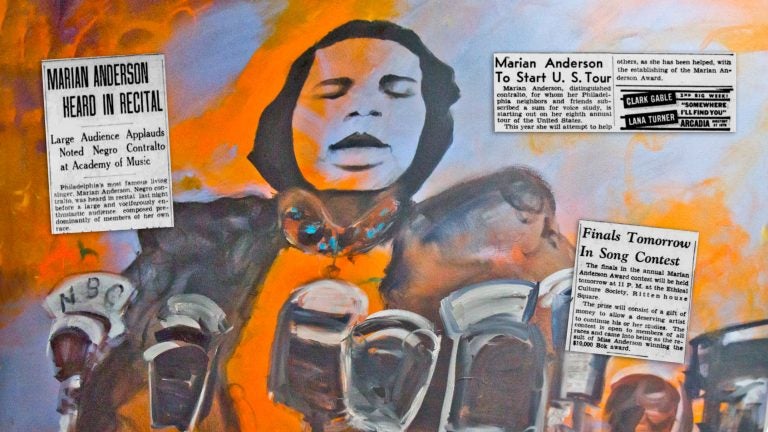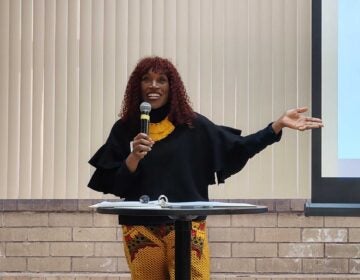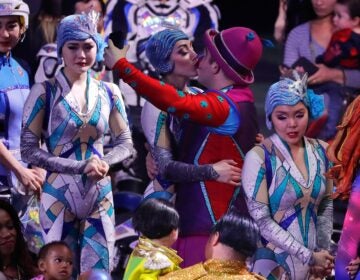Marian Anderson: Voice of Freedom
Over 80 years ago, Marian Anderson was barred from performing at Constitution Hall because she was Black. So she sang for thousands in front of the Lincoln Memorial instead.
Listen 49:31
A portrait of Marian Anderson by artist Jeffery McNutt. (Kimberly Paynter/WHYY)
Up first on the show, we’ll get a recap of what happened at yesterday’s Senate impeachment trial of former President Trump with JACQUALINE THOMSEN of The National Law Journal. Then, over 80 years ago, Marian Anderson was barred from performing at Constitution Hall because she was Black. So she sang for thousands in front of the Lincoln Memorial instead. On Wednesday, we remember the life and legacy of Philadelphia-born Marian Anderson with soprano opera singer ANGELA BROWN and ADRIANE LENTZ-SMITH, professor of history and African & African American studies at Duke University. A new documentary about her life, Voice of Freedom, premieres on WHYY TV on February 15th at 9pm.

Subscribe for more Radio Times
Interview highlights
On Marian Anderson changing the lyrics of My Country Tis of Thee
Marty Moss-Coane: She changes the words “of thee we sing” instead of “of the I sing.” What do you see as the significance of that?
Adriane Lentz-Smith: It’s a claim. The “we” is a reminder of national community on the one hand. So some audience members might hear that as we’re all part of this American nation. But at the same time, it’s speaking to the Black folks listening. I am part of you. We are here together. And we are sharing this moment because it is about our presence and our fate.
A caller asks our guests about where we go from here
Janet (caller): When will this rift change in the United States? You know, Black people are wonderful people and we’re still getting the short end of the stick. It’s like built into the fabric of this country that they will never take their foot off our necks. And Marian Anderson was fabulous, you know, and we have to do these special shows to let people know that she was fabulous. When are we just going to be accepted? And this madness of racism go away?
Angela Brown: You know, Miss Janet, I don’t know. All I know is that I have to keep being excellent. And when we have examples like Marian Anderson — I mean, you can’t pooh-pooh the fact that she was fabulous — I’m going to continue my march to be shiny and I would suggest that we all do that because what can we do? You said something so profound. It’s knit into the fabric of America. So it is what it is. But I don’t have to be what they say I am. I’m going to be what God says I am and who I say I’m going to be. So I’m just going to continue to be excellent and keep moving.
WHYY is your source for fact-based, in-depth journalism and information. As a nonprofit organization, we rely on financial support from readers like you. Please give today.





